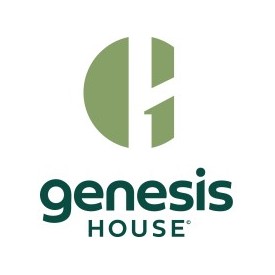It takes a lot of hard work for someone to get past an addiction to drugs and alcohol. This is especially true for anyone who has been dealing with an addiction for a significant amount of time. The good news is once someone gets through rehab, they will have an opportunity to walk the straight and narrow road of recovery.
For a moment, let’s consider all the hard work that goes into getting through treatment. Upon entering rehab, the drug addict faces a stint in detox. Most reputable drug rehabs in South Florida provide patients with access to a drug detox program. Depending on the depth of the patient’s addiction, a medically-monitored detox program could be necessary to prevent possible health issues related to withdrawal symptoms. As an example, the possible withdrawal symptoms from a opiate addiction might include:
- Severe muscle cramping throughout the body
- Convulsions and tremors
- Psychological issues related to anxiety, depression and anger
- Hallucinations and disturbing dreams
- Breathing problems
- Heart-rate and blood pressure problems
- Sleep issues – insomnia
Any one of these symptoms could escalate into serious health issues. In a medically-monitored detox program, medical professionals will monitor each patient’s progress. If a patient begins showing signs of distress, the protocol would dictate those patients be given some type of medication to ease their issues.
Once a patient gets past their withdrawal symptoms and cravings for drugs, they head off for therapy and counseling. The goal of therapy and counseling is to help the patient understand the dangers of continued substance abuse. The patient will also get an opportunity to better understand the circumstances that may have caused them to seek refuge from a needle, pill or bottle of booze.
Along with learning the truth about causation, the patient will also get an opportunity to build better coping skills to get through life. When coping skills can be directed at specific triggers and temptations, the patient is going to increase their chances of avoiding future relapse.
The Aftermath – Support Groups for Relapse Prevention
After doing all the hard work needed to get clean, most recovering addicts want to keep it that way. However, not every patient leaves rehab filled with confidence. It’s for that reason many top rehabs encourage departing patients to seek out support group resources. For the most, there’s three primary resources available to recovering addicts. That would include:
- Outpatient Group Therapy
- 12-Step Meetings
- Sober Living
Let’s take an in-depth look at these options.
Outpatient Group Therapy
While taking part in a residential treatment program, patients are taught the importance of participating is group therapy sessions. They learn they are not alone in their battle with drugs or alcohol. They also learn about how other people deal with recovery and living life on life’s terms. During the group therapy process, a lot of patients come to the realization they will need support groups on the outside. That’s why many rehab centers allow recovering patients to continue participating in group sessions on an outpatient basis.
12-Step Meetings
Most of us have at least heard of Alcoholics Anonymous and Narcotics Anonymous. 12-Step meetings are available almost anywhere in the world. As a member, each recovering addict gets an opportunity to build relationships with people who have one important common goal, staying clean. With the help of a sponsor, members work through the actual 12 steps, which form a stairway to permanent sobriety. There’s nothing more powerful than one addict helping another.
Sober Living
For the recovering addict who just isn’t ready to face all their responsibilities right off the bat, a sober living home is a great place to land. Most sober living homes focus one accountability and sobriety while allowing the residents to pick up responsibilities as they gain strength. Step-by-step, residents build each day until they feel empowered to test their sober wings. The great thing about sober living is it’s always available to anyone wanting to stay sober but feeling shaky. In some ways, the support groups from sober living become family.
If you need help with your addiction, we have just what the doctor ordered. To get started, you can contact one of our staff members at 855-936-4435. We hope you will always remember that no one expects you to fight your addiction on your own. Help is always available when you need it.










